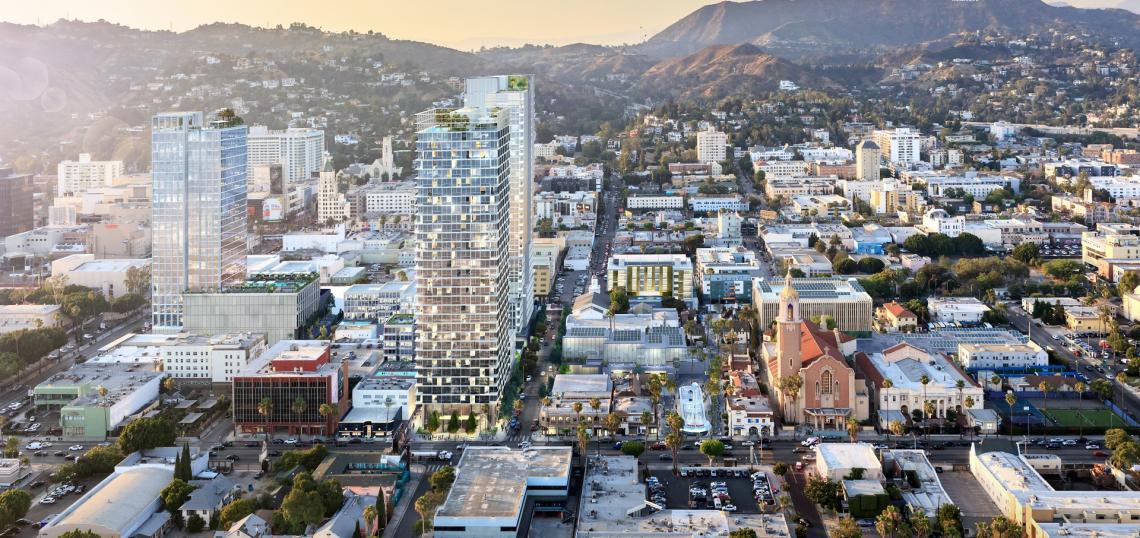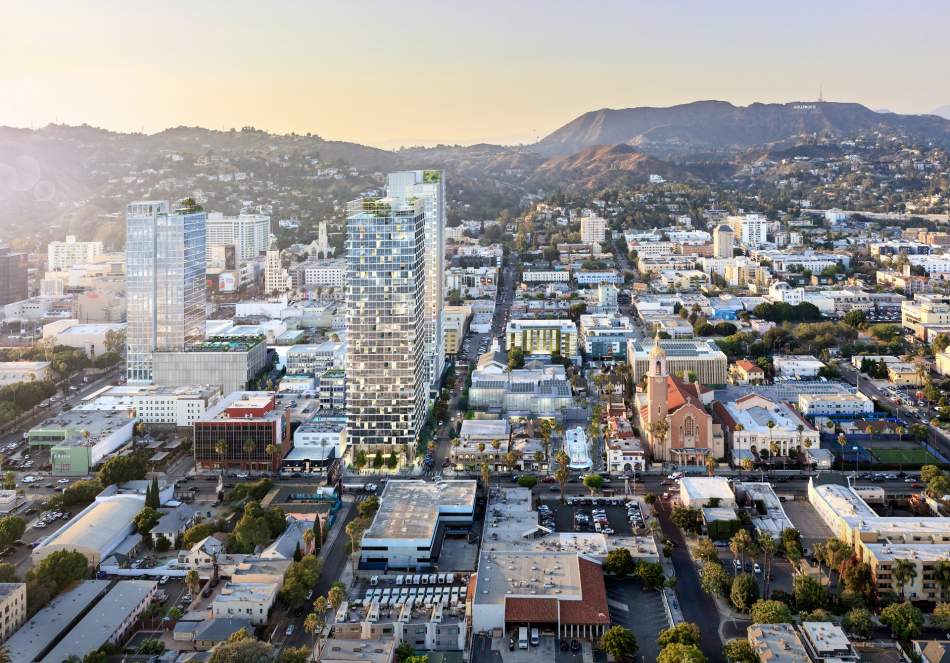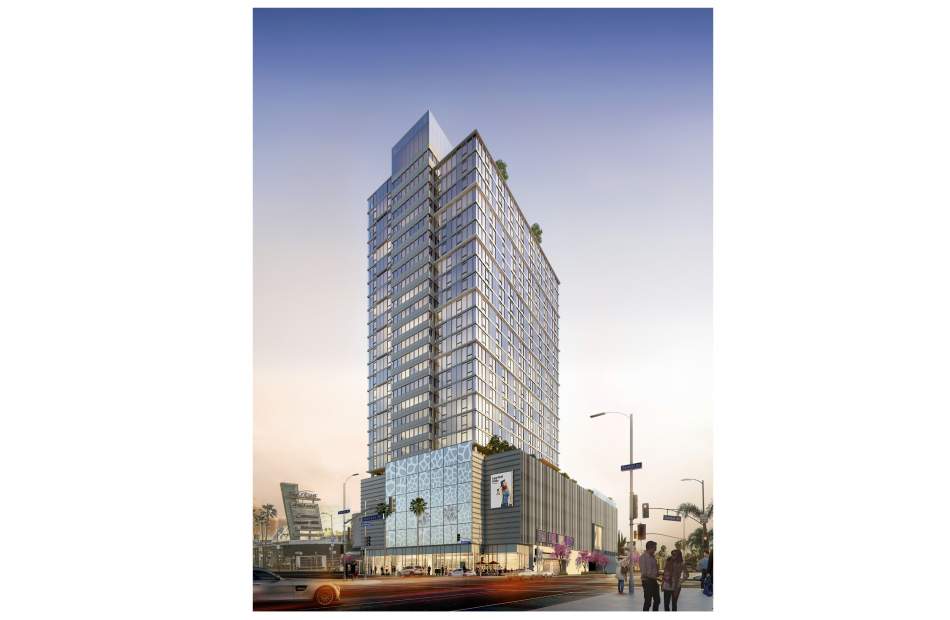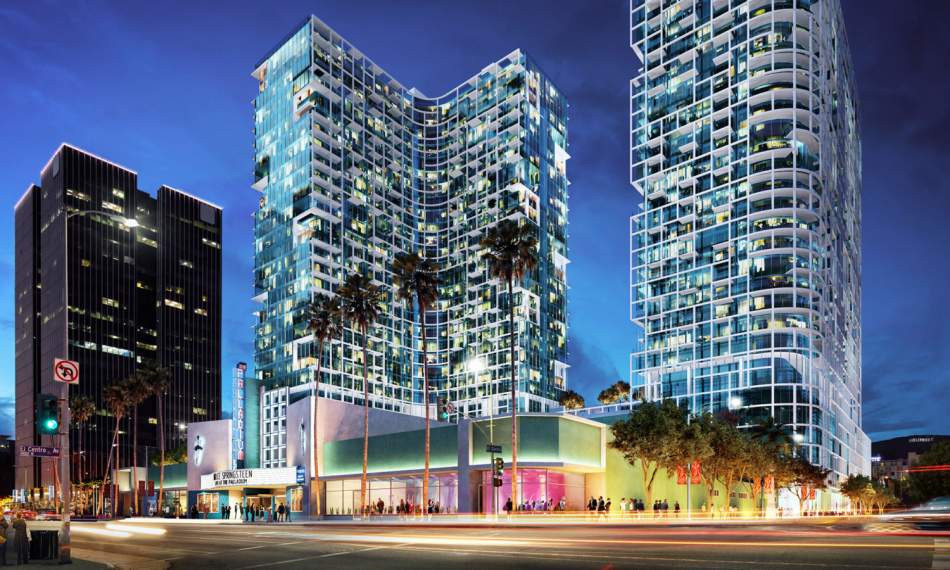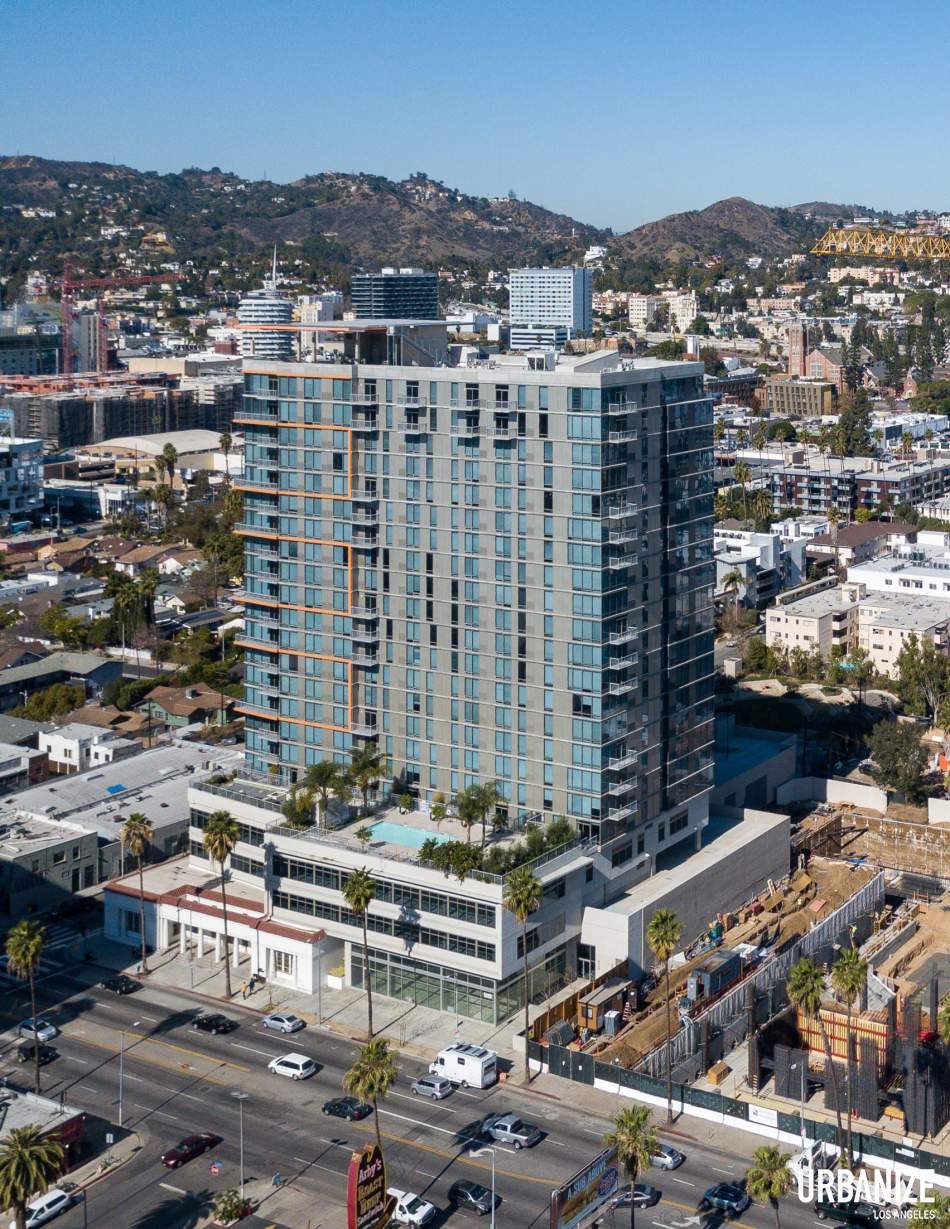Several developers are breathing a sigh of relief following a ruling issued earlier this month by California's Second District Court of Appeal.
In a ruling published on June 15, the Court upheld a trial court decision which dismissed a lawsuit from the AIDS Healthcare Foundation (AHF) alleging that the City of Los Angeles violated the Federal Fair Housing Act (FHA) and California Fair Employment and Housing Act (FEHA) by approving four high-rise housing developments in Hollywood.
The four projects challenged by AHF's lawsuit are:
- Crossroads Hollywood - a proposed 1.4-million-square-foot development near Sunset Boulevard and Highland Avenue consisting of multiple high-rise and low-rise structures containing 950 residential units - including 105 very low-income affordable units - with 190,000 square feet of commercial space and a 308-room hotel;
- 6400 Sunset Boulevard - a proposed 26-story building at the former site of Amoeba Music consisting of 200 apartments - including on-site affordable units - with ground-floor retail and podium parking;
- The Palladium Residences - a proposed two-tower development at 6215 Sunset Boulevard consisting of 730 residential units with parking and ground-floor retail space; and
- Sunset Gordon - a completed 22-story building at Sunset Boulevard and Gordon Street consisting of 299 apartments - including 15 affordable units - with offices, retail, and parking. The building has been empty since 2015, after a prior lawsuit voided approvals granted to developer CIM Group.
AHF’s lawsuit alleged that the City's approval of the developments, all of which are located along a one-mile stretch of Sunset Boulevard, will accelerate gentrification in Hollywood, displacing existing Black and Latino residents. Its petition also argued that the City has not adopted sufficient safeguards against displacement - including the provision of additional affordable housing within the neighborhood - and asked the court to void the approvals of all four projects.
While the Court acknowledged that the projects may result in higher rents in the surrounding community, it found that the decision to increase rents rests with third-party landlords, not the City or the four developers.
AHF's arguments cited multiple past cases in which jurisdictions were found to have violated the FHA by adopting policies prohibiting the construction of affordable housing. However, the Court decision states that the City of Los Angeles has adopted no such policy, and the decisions to approve of the four developments do not by themselves impose barriers to fair housing.
"AHF has not alleged the City has restricted the building of affordable housing in the area through zoning, an ordinance, or other land use decision, as part of its approval of the Projects," reads the decision.
The Court also dismissed AHF's claim that the developments violate the FHA by removing existing housing. While the Crossroads project calls for the demolition of 84 rent-stabilized apartments, the proposal also calls for the construction of 105 deed-restricted affordable housing units - including 40 reserved for residents of the existing building. The other three projects either consist of an existing building, or are planned for sites which are not currently developed with housing.
The decision concludes that as the projects include below market-rate housing, voiding the City's approval of the four developments reduce the availability of income-restricted housing in Hollywood, counter to the goals of the FHA.
"No one disputes the existence of gentrification or its potential ill effects," reads the decision. "But in the absence of a policy that actually limits the availability of affordable housing, AHF's remedy is to petition the City or the Legislature to enact laws or policies to counteract the future effects of gentrification. The FHA and FEHA, however, were designed not to impose land use policies on public and private actors, but rather to eliminate those policies that are barriers to fair housing."
AHF may still petition the California Supreme Court for review.
AHF has emerged as a staunch opponent to large mixed-use developments in the Los Angeles area, and has taken legal action against several projects near its Hollywood headquarters. In a separate case, the non-profit organization unsuccessfully sought to overturn the approvals of the Palladium Residences last year - one of the projects targeted in the FHA lawsuit.
- Hollywood (Urbanize LA)





